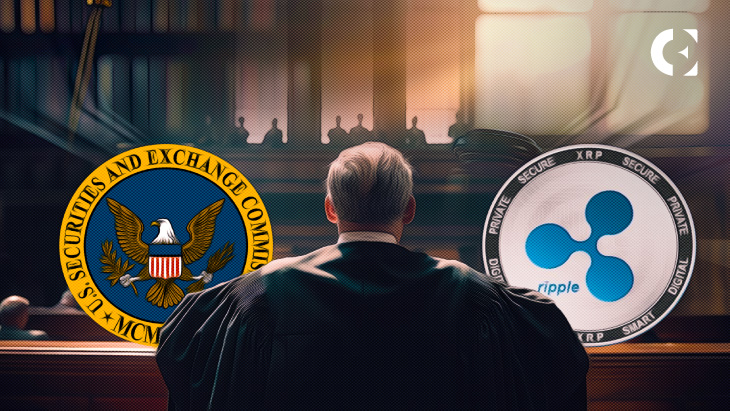- Bill Morgan believes the SEC is trying to stretch the Howey Test in its case against Ripple.
- Morgan asked people to dispel any doubt on the SEC’s plot even if Judge Torres sidesteps ruling on secondary market spells.
- Morgan based his stance on John E. Deaton’s submission to Judge Analisa Torres.
According to digital assets enthusiast Bill Morgan, there is no doubt the US Securities and Exchange Commission (SEC) is trying to stretch the Howey Test in its case against Ripple. Morgan made the statement while acknowledging a submission by John E. Deaton, the Managing Partner of the Deaton Law Firm, to Judge Analisa Torres of the US District Court of the Southern District of New York.
Morgan emphasized that even if Judge Torres sidesteps ruling on secondary market spells, people should dispel any doubt on the SEC’s plot. He noted that in the SEC v Bittrex matter, the allegations against Bittrex rested on the characterization of the digital assets involved as being securities, even when sold in the secondary market.
Morgan based his stance on Deaton’s submission to Judge Torres, where he noted the SEC’s theory on the case is farfetched. Deaton observed the SEC had asked the court to validate its contention to classify all existing XRP tokens as securities. That includes XRP tokens sold in the secondary market.
According to Deaton, the SEC’s Howey argument’s scope has become so stretched that it is indefinable in space or time. He noted the SEC is asking the court to assume private statements made by Ripple employees to a handful of individuals, evidence that Ripple offered XRP to the world.
Deaton faulted the SEC’s approach and application of the Howey test. He described it as a shortcut, noting that the regulator assumes every sale of XRP meets all three Howey prongs, making it unnecessary to offer specific transactional evidence.
Deaton thinks the Howey test must apply to each transaction, and examined as of the time the transaction took place. According to him, the SEC’s theory would be amusing if it did not harm innocent holders.
Disclaimer: The information presented in this article is for informational and educational purposes only. The article does not constitute financial advice or advice of any kind. Coin Edition is not responsible for any losses incurred as a result of the utilization of content, products, or services mentioned. Readers are advised to exercise caution before taking any action related to the company.







